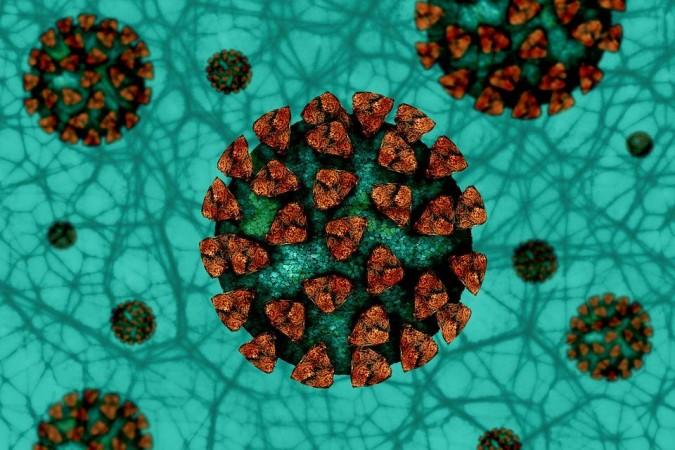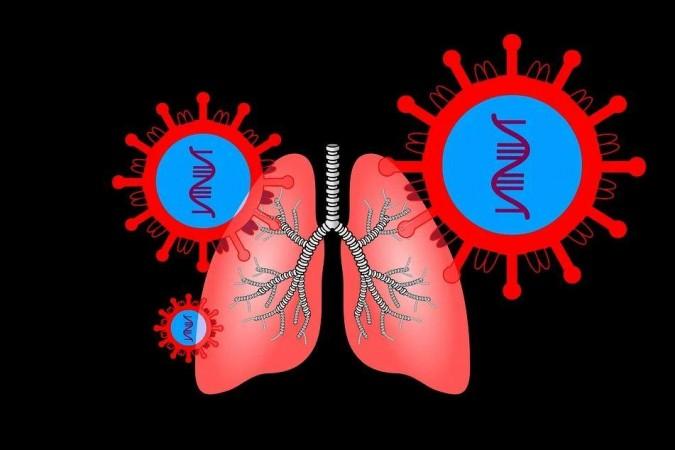The COVID-19 pandemic has strafed the world for 18 months now. However, as the scientific community finds ways to deal with the SARS-CoV-2 coronavirus, it has mobilized new and lethal troops—variants—which are rendering therapeutic options ineffective. Now, a new study has reported the creation of a hybrid antibody that is administered nasally and can neutralize not just the original virus but several of its variants, including variants of concern (VOCs).
According to the multi-institutional, a newly engineered antibody known as IgM-14 was found to effectively block over 20 variants of the SARS-CoV-2 virus, including VOCs. The antibody was found to have a strong preventive and therapeutic effect in mouse models and was found to reduce viral load in the lungs within just two days after infection.
"SARS-CoV-2 has evolved mutations that severely compromise the neutralizing activities of multiple IgG monoclonal antibodies, including those under clinical trials and authorized for emergency use. Therefore, developing new antibody therapies that can overcome these challenges is an urgent unmet need, and we are pleased with the data published today," said Dr. Zhiqiang An, corresponding author on the study, in a statement.
Notorious Variants

As of May 2021, four variants have been declared as VOCs by the World Health Organization (WHO)—P.1 (Brazil), B.1.617 (India), B.1.351 (South Africa), and B.1.1.7 (UK). Some of the VOCs are worryingly more transmissible than the original Wuhan virus. Several recent studies have demonstrated that protective antibody responses induced against the original strain—through vaccination or through natural immunity—have decreased effectiveness in negating these variants.
The source of the increased transmissibility and immuno-evasive abilities of the SARS-CoV-2 variants are attributed to the mutations on their spike protein (the hook-like structure that the virus uses to invade human cells). Nearly all the mutations are concentrated in the RBD (receptor-binding domain) of the spike, which is the area where the binding with the host cells takes place.
Need for Effective Delivery
Over the course of the pandemic, researchers have worked on developing antibodies as a treatment against COVID-19. A handful of IgG (Immunoglobulin G) antibodies have received EUA (emergency use authorization) by regulatory agencies across the world. However, several of these variants are notoriously resistant to the virus' variants. Additionally, as most of the antibodies are delivered intravenously, the dosage required for them to reach the lungs and be effective requires a very high dosage.

"High viral load in the respiratory tract correlates with severe illness and mortality in patients with COVID-19. Respiratory mucosal antibodies are key to clearing SARS-CoV-2 infection and reducing viral transmission and IgM antibodies are nature's first line of defense against pathogens such as viruses," explained Dr. An.
Engineering Potent Antibodies
For the study, the authors 'stitched' IgG fragments that target SARS-CoV-2 to a different variety of antibodies known as IgM (immunoglobulin M) and IgA1 (immunoglobulin A1). Five IgG1 mAbs (Immunoglobulin G1 monoclonal antibody)—CoV2-06, CoV2- 09, CoV2-12, CoV2-14, and CoV2-16— from a previously isolated antibody library, were engineered into human IgMs and IgA1s.
It was found that these newly engineered antibodies attached themselves to the RBD of the SARS-CoV-2 spike better than their parental IgG1s and neutralized the virus. Of all the manufactured antibodies, IgM-14 (or IgM CoV2-14), showed enhanced potency against the pathogen.
As the authors focussed their efforts on IgM-14, they observed that its neutralizing effect was far superior to its corresponding parental IgG-14. It was found to neutralize 21 RBD mutants. Most importantly, IgM-14 was found to show strong inhibiting action against VOCs such as P.1, B.1.351, and B.1.1.7.
Protection and Neutralization

The authors tested the potency of IgM-14 by administering the antibody intranasally (IN) in a mice model. IgM-14 was sprayed into the noses of mice either six hours before or six hours after infection. They found that a single of 0.044 and 0.4 mg/kg gM-14 provided prophylactic (protective) and therapeutic protection against the SARS-CoV-2 coronavirus in mice respectively. A sharp reduction in the amount of virus within the lungs of the rodents was observed within only two days after infection.
Also, IgM-14 conferred powerful protection against P.1 and B.1.351 variants. The hybrid antibody exhibited beneficial IN safety and pharmacokinetics (interaction of the body with drugs) in mice. "Our results demonstrate that IN administration of an engineered IgM can improve efficacy, reduce resistance, and simplify the prophylactic and therapeutic treatment of COVID-19," the authors wrote.
IgM-14 has been licensed to IGM Biosciences, a California-based biotechnology company that collaborated on the study, for further drug development. Fred Schwarzer, CEO of IGM Biosciences, commented, "The ability to use potently neutralizing IgM antibodies against SARS-CoV-2 with broad coverage of VOCs, VOIs, and viral escape mutants, is a very exciting application of the IGM platform."

















